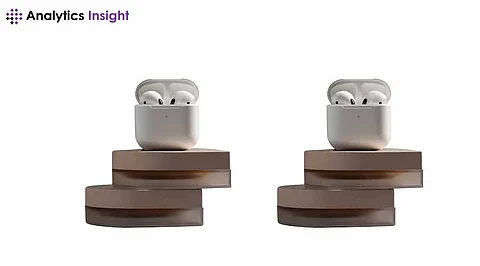

Apple may actively be developing AirPods with minuscule cameras. The AirPods would be dedicated to improving the quality of sound experiences, tracking health, and augmented reality. Bloomberg's Mark Gurman says that the tech giant is looking to include infrared cameras in its AirPods under its strategy of wearables.
While the purpose of these Apple cameras is being speculated upon, the rumors suggest that they will likely function as infrared sensors rather than regular photographic or video cameras. As far as one can gauge, the major application of these infrared cameras would be for spatial audio enhancement.
Using them in tandem with Apple's new Vision Pro headset may perhaps provide people with an immersive experience. It may also have an interactive listening mode that fuses audio and visual inputs into unique dimensions.
Adding cameras to AirPods marks exciting new territory in wearable technology while advancing the borders of augmented sound and gesture command. Added advanced features regarding AR capabilities and greater interlocks with Apple's systems. These would all be within an evolving view about wearables coming together in their future directions at Apple.
Despite this, such an ambitious development comes with its own set of challenges. At the top of the list are privacy issues because the integration of cameras into personal devices could lead to data collection and security issues. Apple will need to develop stringent privacy measures and communicate effectively about how data is treated to address possible user concerns.
Additionally, miniaturizing camera technology while maintaining image quality and ensuring the devices’ battery life are crucial technical hurdles Apple must overcome. These engineering challenges are significant but not insurmountable, and Apple's track record in device innovation suggests they could find solutions.
Mass production of the camera-equipped AirPods is supposed to start around 2026 and possibly release in 2026 or 2027. Apple's timeline for this new product reflects the wide testing and development that have to happen before its release.
Despite the challenges, Apple's foray into this space could change the way that users interact with audio, health, and AR technology. Thus, giving users new layers of convenience and immersion in their lives. The potential success of such developments will depend as much on what Apple does regarding user privacy as on the functionality of the technology itself.
